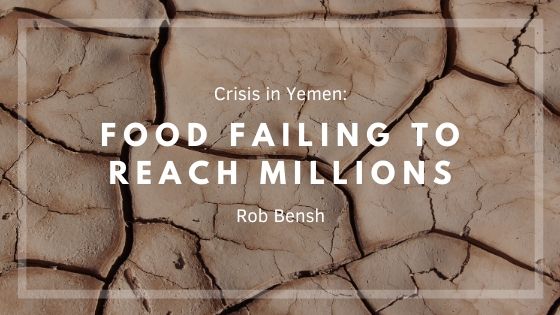There is currently an ongoing humanitarian crisis in Yemen, according to BBC. At present, 6.7 million Yemenis are at immediate risk of falling into a state of famine due to the last three years of civil war between Houthi rebels and Saudi-backed coalition forces. Major donors of aid and a few of the world’s largest humanitarian aid organizations met in Brussels last week Thursday in an attempt to collaborate a collective response to what has been regarded as an unexpected and intolerable obstruction to aid by the Houthi forces that control the majority of Yemen.
So far, months of discussion between Houthi leadership and the U.N. Security Council have failed to find any resolutions to a series of obstructions to aid, ranging from the delaying of permits that will allow the U.N. to distribute food aid to harassment and detention of U.N. staff. Concern has been expressed over this “extremely hostile environment.”
Concern for aid efforts has nearly reached a breaking point due to a levy that has been proposed by the new body established by the Houthis for the purpose of exerting greater control over aid, called the Supreme Council for the Management and Coordination of Humanitarian Affairs (SCMCHA). The proposed levy will take a toll out of costs of operation that amount to 2% of the budget. Most agencies operating in Yemen are not speaking on record due to the sensitive nature of this and concerns that this will help fund the war.
“We don’t want any disagreements with aid agencies,” states Mane al-Assal, head of SCMCHA Department of International Coordination. “We informed them that if we work together towards a common goal to help people in need then we will not disagree, but not if they bring in political considerations,” he went on to state, on record. In regards to the levy, al-Assal says “there should be nothing wrong with providing funds which enable us to coordinate aid when we’re suffering from a blockade,” referencing an air and sea port blockade that was imposed by the Saudi coalition in an attempt to stop the distribution of weapons and implements of war to the Houthis.
While al-Assal paints one picture of the Houthi leadership, officially recognized as Ansar Allah, major donors are growing anxious over the appearance of violations of humanitarian principles, with the misuse of tax dollars at the forefront of this anxiety.
No solutions to this crisis have been made yet, but the U.N. is in discussion about the possibility of scaling back aid until the apparent hostility towards U.N. efforts to distribute aid can be mitigated.

